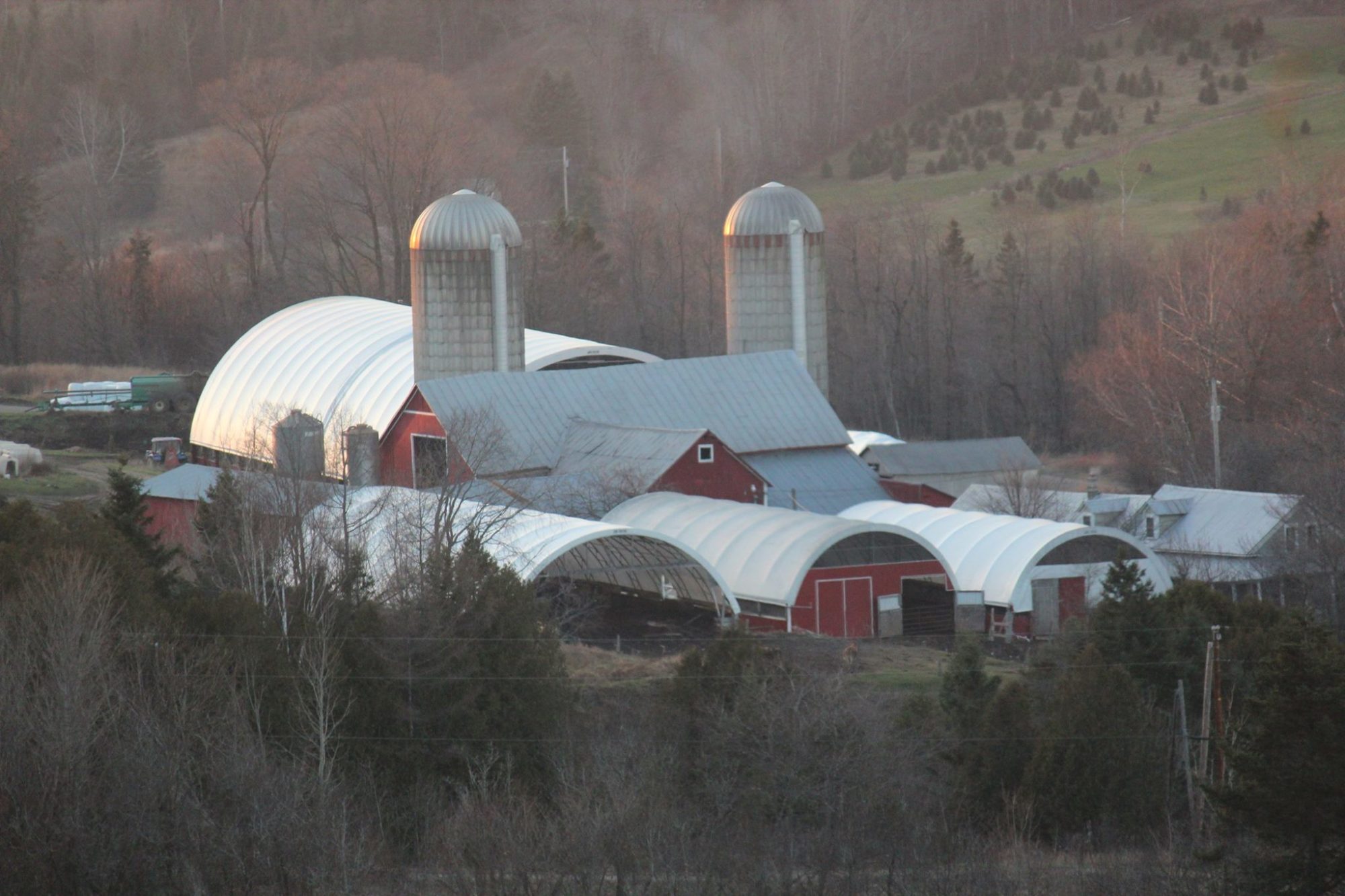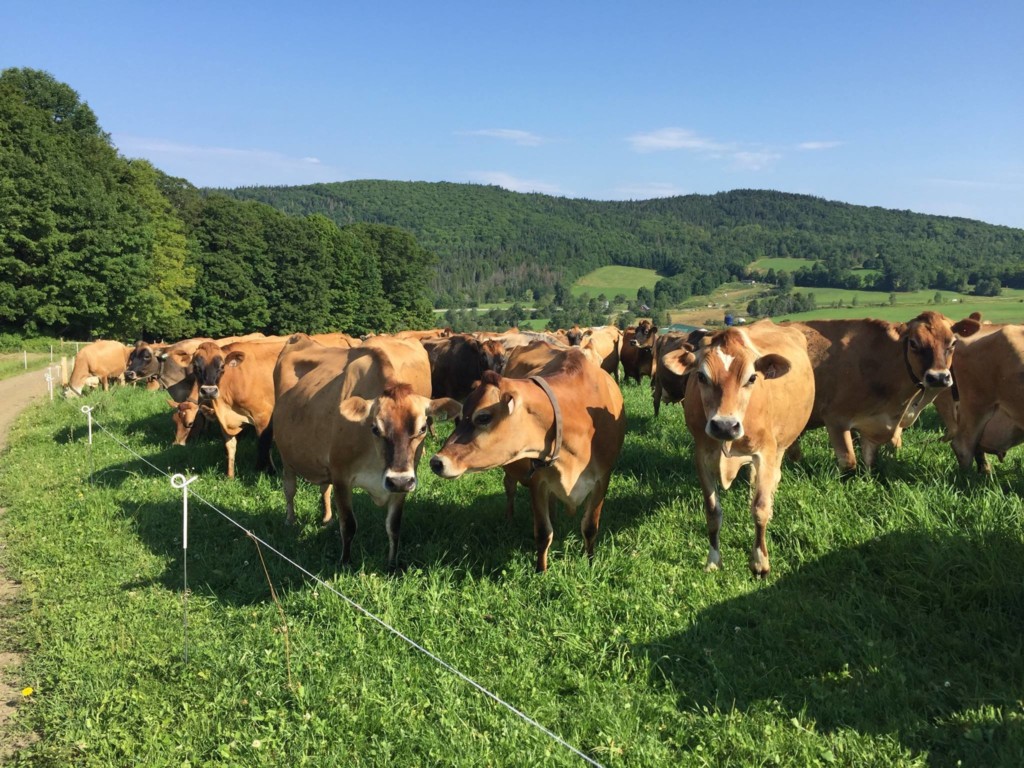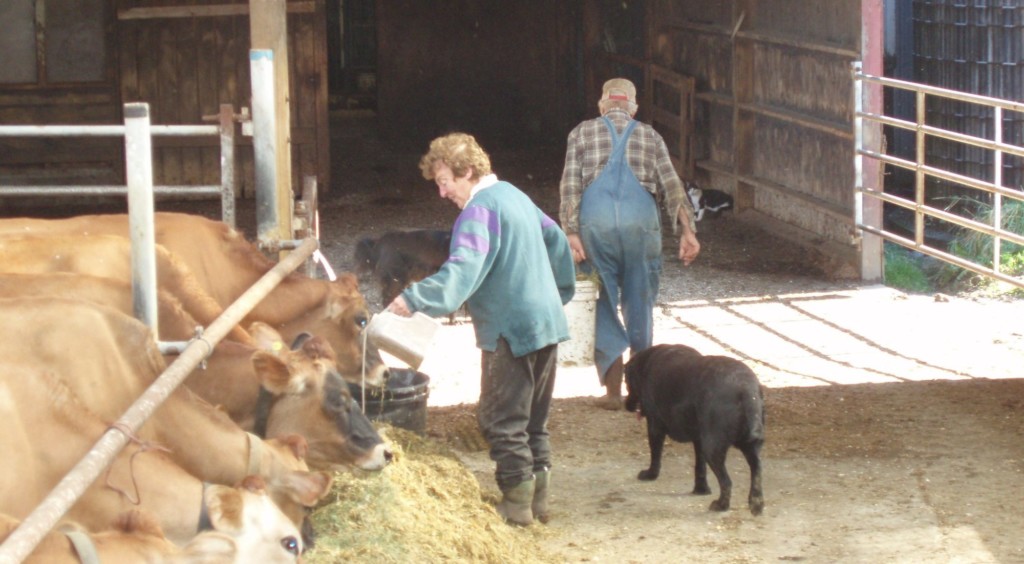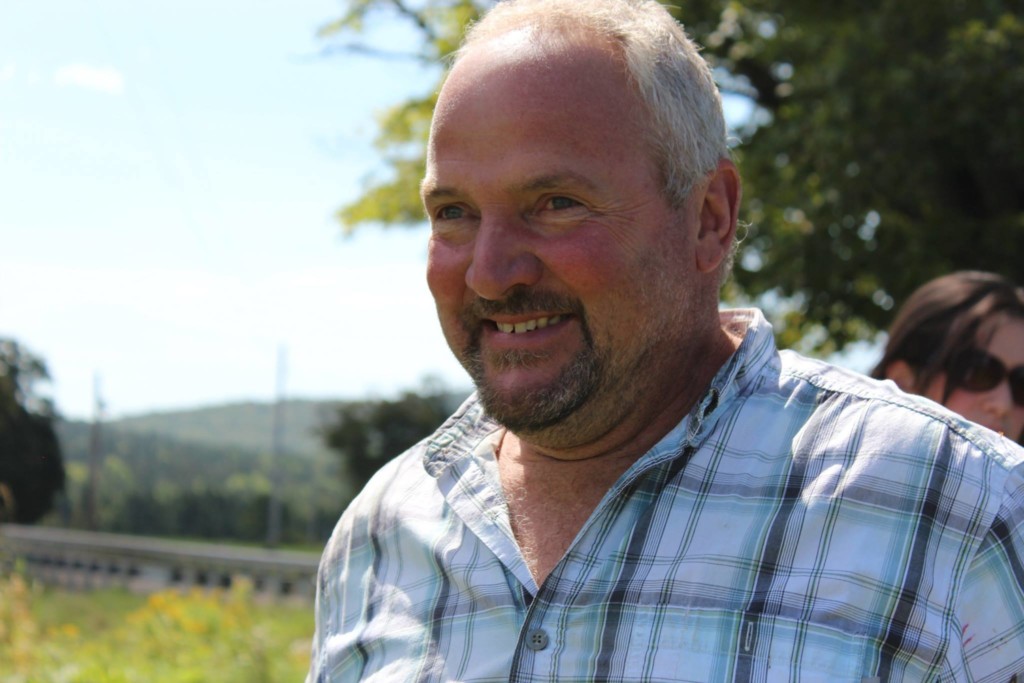A Story of Respect and Resilience
September 26, 2018

By Jake Claro, Vermont Farm to Plate Director
One of the first things you notice at Molly Brook Farm is that Rhonda and Myles Goodrich call every single one of their 77 cows by name. “Move along Clover,” or “this way Charlotte” is heard in the milking parlor during the daily milking sessions. The Goodrichs, like so many other Vermont farming families that span generations, have a deep respect for the animals that produce their livelihood – jersey milk.
This deep level of respect is not so surprising when you consider that Myles’ family has been raising jersey cows on this 565-acre farm in Cabot since 1835. Born and raised on the farm, Myles is the seventh-generation descendent of Amos Abbott (1790-1875) and Betsey Abbott (1794-1874) who lived on the original farm. Myles’ father, Walt, was 91 when he passed away this summer in the farmhouse bedroom where both he and his mother were born.
Molly Brook has a long and distinguished role in the dairy history of Vermont. Wendell and Inez Goodrich were one of the founding families of the Cabot Creamery Cooperative in 1919. At that time, the Goodrich’s were one of six families to put their farm up as collateral for loans to start the now world famous creamery. All of the jerseys on the farm have been registered since 1917.

Jerseys at Molly Brook Farm, West Danville, VT
Capitalizing on good genetics
Beginning with a jersey cow named Molly Brook Fascinator Flower (Flower), in the 1980s, Myles’ parents, Sally and Walt, took an innovative approach to marketing their jersey’s genetics around the world. “Our jerseys are prodigious producers and the quality of their genetics combined with Sally and Walt’s marketing efforts really being ahead of its time has brought international recognition to the farm,” said Rhonda Goodrich. Flower’s presence has been so far reaching that today her lineage can be found on every continent except Antarctica. And rather amazingly, in May 2017 using an embryo kept frozen for 22 years, Flower’s daughter was born at Molly Brook.
From rural electrification and the introduction of the internal combustion engine to the impacts of a global milk market, the farm and the Goodrich family have weathered a number of changes and challenges over the last two centuries. Unfortunately, the last couple of decades have introduced a seemingly endless number of hurdles for the dairy industry. Small dairy farms, like the Goodrich’s, have been disappearing from the rural landscape for decades and the problem has only been exacerbated recently. A sharp decline in milk prices paired with an increased cost in grain and electricity prices has led to 66 Vermont dairy farms selling off their herds this year alone.

Sally and Walt Goodrich, Molly Brook Farm
“It’s heartbreaking,” said Rhonda. “Farmers who have devoted their entire lives to their farms and their animals are working 16 to 18 hour days every single day of the week and still losing money. I am not sure that people truly understand the impact that small dairy farms have in Vermont and what our state will look and feel like if they continue to disappear.”
Transitioning to organic
Taking a look at the difficult landscape Myles and Rhonda realized that in order to survive they would need to make some changes. “In 2015 we made the decision to transition the herd and our land to organic,” said Myles. Two months ago, in July 2018, the farm celebrated their official organic certification in true Goodrich style – it included a farm shindig with pizza, beer and live music where they welcomed the local community. “The Goodrich’s don’t stand still on their hillside farm in Cabot,” said Anson Tebbetts, Vermont’s Secretary of Agriculture. “Nearly a century ago they brought their cream to the Cabot Creamery to make cheese. They were at the forefront of developing the Jersey breed across the United States and world. And now they are a model for other farms across the region willing to adapt to new organic practices – and selling to Stonyfield — that fit their farm and family. The Goodrichs love their animals, land and community and are always looking to the future”

Myles Goodrich, 7th Generation dairy farmer
While the challenges and struggles of the dairy industry aren’t over, for now, the transition to organic has helped the Goodrichs survive the latest crash in dairy prices. The family farm’s resilience has relied on the ability to evolve with every new era in farming, for the better part of 200 years. The Goodrich model – one that relies not only on dedication and respect for the art of dairy farming but on the ability to be flexible and to adapt – is a model for successful 21st century agriculture in Vermont.
This article is the 3rd installment in Vermont Sustainable Jobs Fund’s Face of Farming Series. The series will profile a variety of farmers throughout Vermont who are employing best practices, implementing innovative approaches and who together represent the evolving face of Vermont’s agricultural system.




